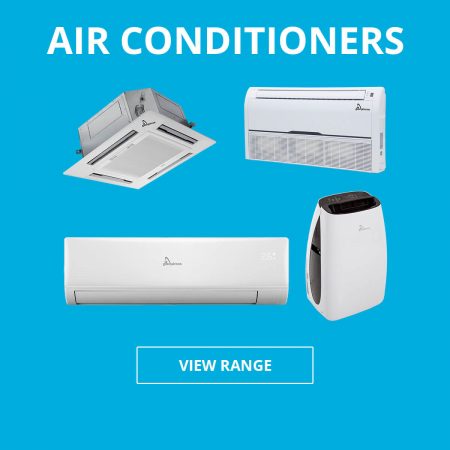A portable air conditioner is one that doesn’t require permanent installation. Usually standing about 28 to 34 tall and with wheels to facilitate portability, these air conditioners can be very useful depending on your needs. They are lightweight enough to be useful in a number of situations.
But they can remain an enigma, especially for those who have never used a portable air conditioner before. One of the biggest questions we get is, is there freon in portable air conditioners? The simplest answer to this question is that all portable air conditioners use a refrigerant that must not leak.
How the Process Works
A portable air conditioner uses a refrigerant called freon to cool the air in the room and exhaust the hot air outside. The refrigerant therefore changes states to allow the easy transfer of heat; it draws warm air into the cooling chamber of the conditioner and passes it over the coils of the evaporator. Freon will then absorb the heat from the warm air and evaporates, thereby cooling it. The cool air is then blown back into the room.
The vaporized freon then flows to the compressor section of the conditioner where it is compressed. During the compression, the temperature and the pressure of the refrigerant is significantly increased. The freon will then flow to the condenser coils which will absorb the heat, effectively cooling them. It then flows to the evaporator and the cycle is repeated until the desired temperature is achieved.
The Dangers of Freon
Freon is very important for portable air conditioners to work properly, since they play a critical role of removing excess heat from the air in the room. But there is a reason the refrigerant used in any portable air conditioner must not leak. In its gaseous state, freon is often odorless and tasteless, which means you may not be able to detect the presence of freon in the air. But when inhaled, freon can cause dizziness, heart palpitations, as well as headaches and irritation to the eyes, lungs, and skin. It’s even been known to reduce the supply of oxygen to the body’s vital organs.
Therefore, it goes without saying that you should always make sure that the refrigerant in your portable air conditioner is not leaking. If you think for any reason that the air conditioner’s freon is leaking, you will need to remove it from the house and have an expert repair the appliance before reusing it.
Factors to Consider when Choosing a Portable Air Conditioner
Under normal circumstances, a portable air conditioner will work as expected, but because there are so many different types available in the market, it can be difficult to choose just one. The following are two of the most important factors to consider when choosing a portable air conditioner:
- BTU and subsequently the size of the room you want to cool. The BTU will tell you how powerful the unit is. The higher the BTU, the larger the area the air conditioner will be able to cool effectively.
- Single or dual hose design. Single hose designs can be easier to install, whereas double hose designs can expel more warm air thereby pulling in more air to cool the room faster.
